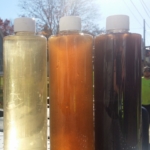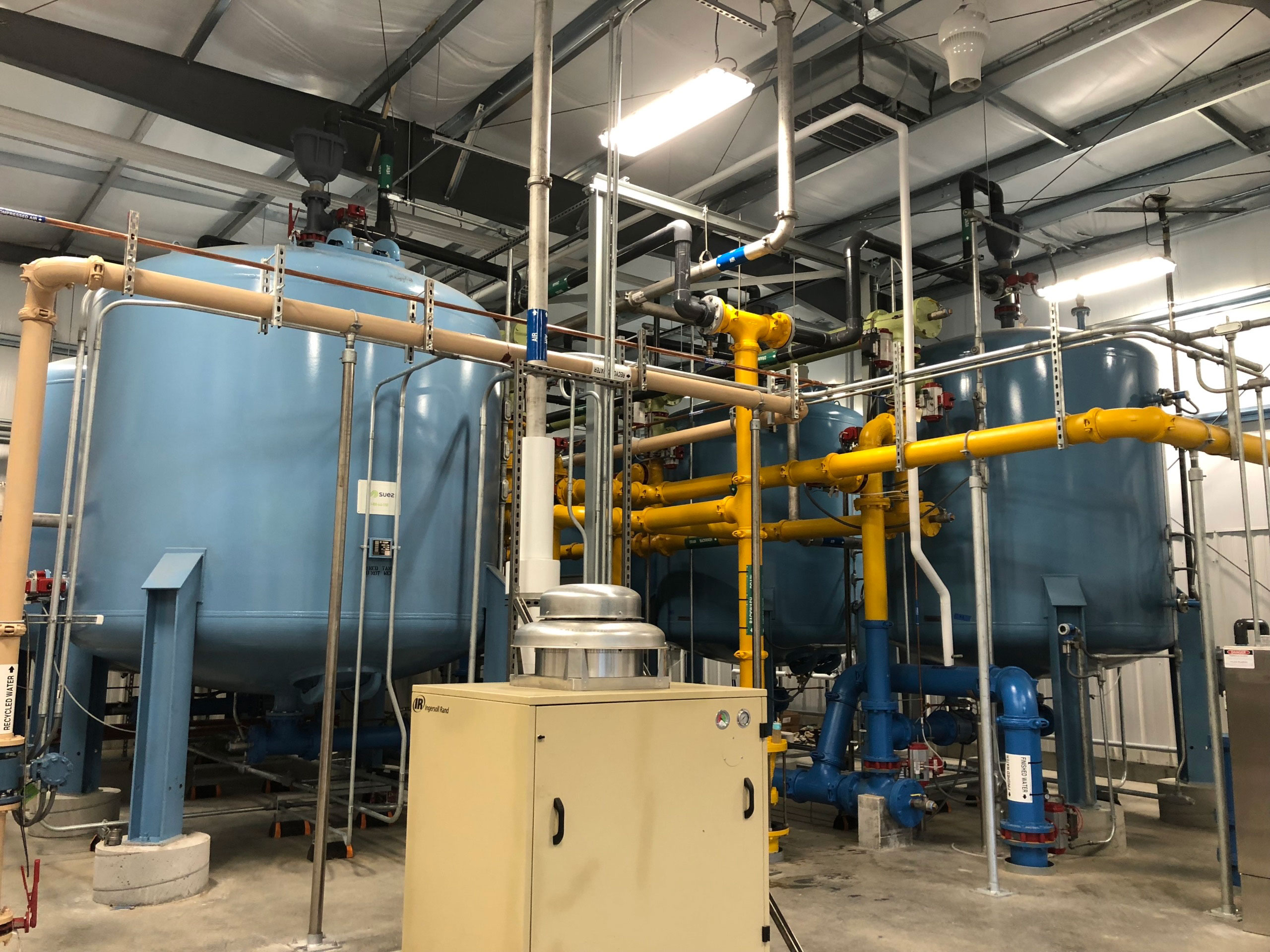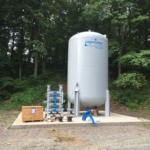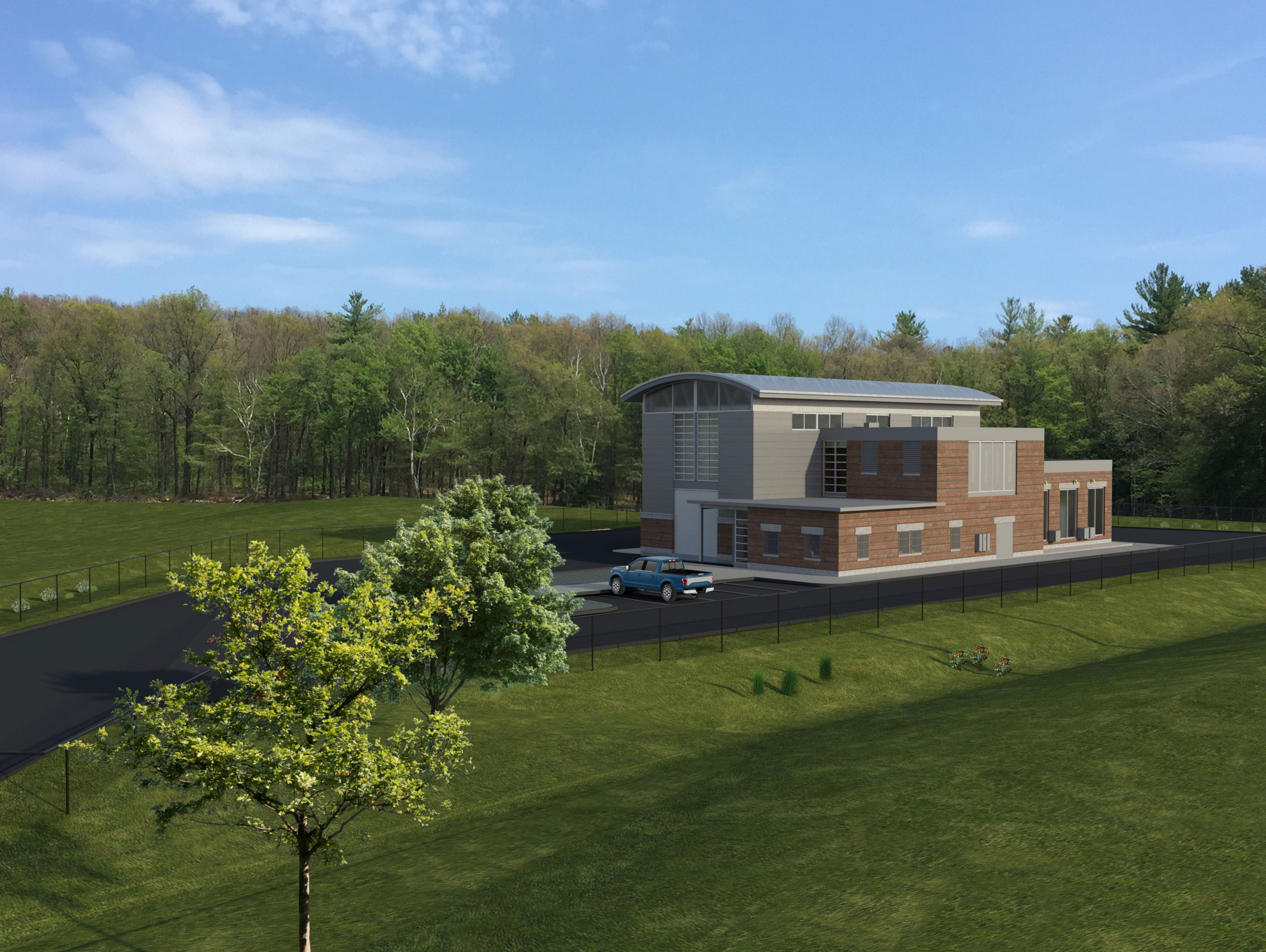How the Treatment of Groundwater Impacts Communities
National Groundwater Awareness Week shines a light on the importance of protecting groundwater and ensuring communities have access to a clean resource. We’re marking the week by sharing how our engineers work with municipalities to keep groundwater supplies clean and safe for residents. Take a look at the projects below to learn more about our work in the treatment of groundwater.
Memorial Beach Water Treatment Plant | Town of Webster, MA

Samples of the water flushed from the Town’s distribution system during ice pigging.
Residents of the Town of Webster were voicing concerns about their water quality, some even bringing in jars of “dirty” water from their homes to public meetings. The 70-mile water distribution system serves more than 11,000 residents. Sediment build-up and elevated levels of iron and manganese in the groundwater were the culprits. Tighe & Bond worked with the Town to first flush the pipes using ice pigging. This aggressive form of flushing injected 2,700 gallons of ice slurry through the pipes to force out any build-up. In just the first round of ice pigging, 1,500 pounds of sediment was removed from over 2.5 miles of pipe.
The next step was designing the Memorial Beach Water Treatment Plant. The plant uses an economic and sustainable filtration system to mitigate elevated levels of iron and manganese in the groundwater and provide clean safe drinking water. Our engineer’s design used GreensandPlus™ filtration with the unique addition of a water recycling system and repurposed an existing pump station facility to provide a cost-effective long-term solution to water quality issues. With the plant located between Webster Lake and a walking track, the facility was designed to be aesthetically pleasing to the area and constructed with minimal impacts to the town’s largest recreational area.

Park Street Wellfield Water Treatment Facility | Town of Putnam, CT
Our engineers designed the first biological treatment facility in Connecticut to remove elevated levels of iron and manganese from 10 existing groundwater wells at the Park Street wellfield in the Town of Putnam. The filtration process removes iron and manganese to below secondary maximum contaminant levels using three eight-foot diameter biological manganese filters, and two ten-foot diameter biological iron filters. The treatment facility is comprised of a pre-engineered metal building, which houses most of the treatment, process, and pumping equipment, as well as a Laboratory/Control Room, and Electrical Room.
There was a strong focus on economic and sustainable solutions for the Town during the design process. The team reused the existing pumps in all ten wells that comprise the Park Street Wellfield and modified the existing chemical feed system (located in an adjacent building) to instead work with biological filtration. The new design also included a water recycling system as part of the treatment process to cut down on wasted water.

A look inside the first biological treatment facility in Connecticut to remove elevated levels of iron and manganese.
Dry Bridge Road Water Treatment Plant | City of Westfield, MA

A look at the GAC treatment system installed as part of the emergency response.
Per- and Polyfluoroalkyl substances (PFAS) are emerging contaminants with recent regulatory levels established in many New England states. The City of Westfield has been managing PFAS contamination since 2016. Due to the limitations of the City being bisected by the Westfield River, the City has limited ability to move water to the north side. In 2018, Massachusetts released new PFAS guidelines that required Well 2 to be taken off-line leaving the north side of the City with limited water supplies while the City’s first PFAS water treatment plant was under construction. In response to the redundancy and reliability risks of losing three of four wells that serve the north side of town, emergency treatment was needed for Well 2.
Tighe & Bond assisted the City with the design and permitting of a fast-tracked project to get Granular Activated Carbon (GAC) treatment installed on Well 2 with a treatment capacity of up to 1,200 gallons per minute (GPM). The emergency treatment system was designed to allow for the GAC contractor to be moved to a future permanent water treatment plant for continued use of the asset. After evaluating alternative source options, the City determined that an additional permanent water treatment plant for Wells 1 and 2 was required. Tighe & Bond assisted the City with feasibility planning, design, and permitting of a 2,600 GPM permanent water treatment plant. The design included 7,000 LF of raw and finished water main, four 40,000 lb. GAC contractors, chemical storage and feed facilities, and laboratory and office space. With emergency treatment in place, the City can continue to reliably delivery safe water to its customers while a more permanent water treatment plant is designed and constructed.

A rendering of the future treatment plant in Westfield, MA.


